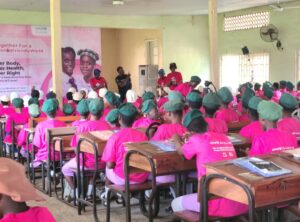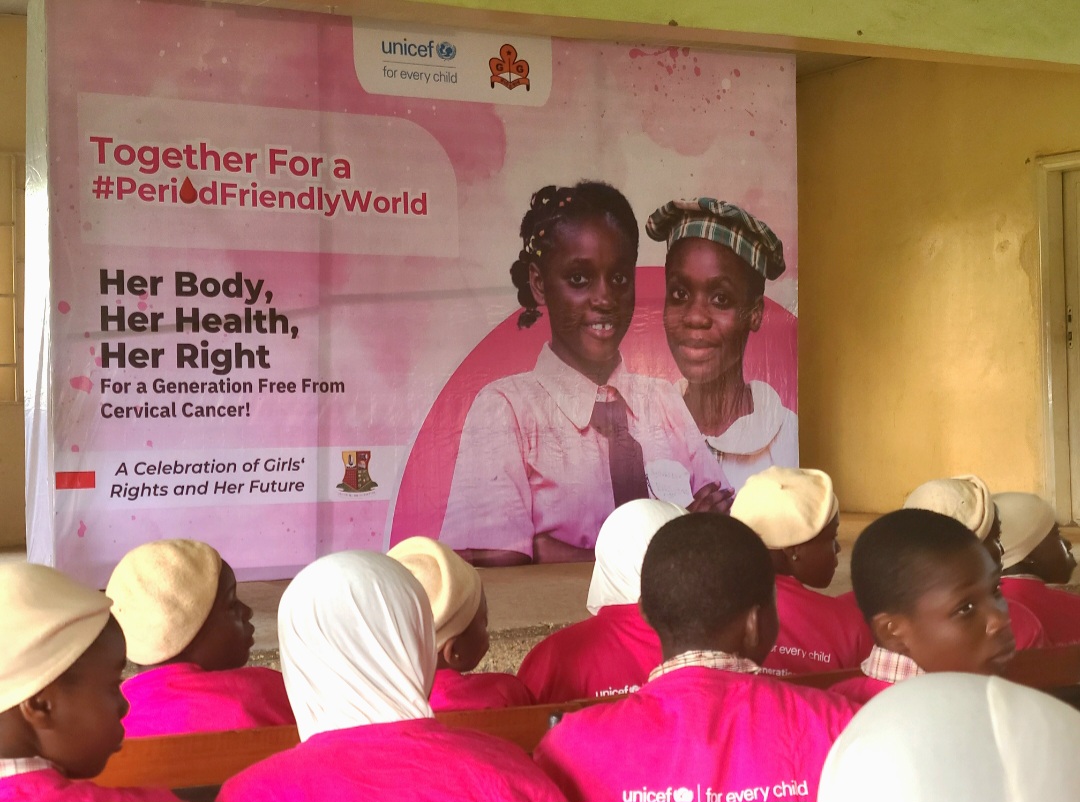In commemoration of the 2025 World Menstrual Hygiene Day, more than 500 young girls in Ibadan have been empowered with knowledge and tools to manage their periods with dignity and to demand nothing less from their schools and society.

The awareness drive, spearheaded by the Oyo State Ministry of Information and Orientation in partnership with the United Nations Children’s Fund (UNICEF), brought menstrual health conversations to life in five secondary schools: St. Theresa’s School, Urban Day School, Deril Academy, Community High School Ibadan, and St. Anne’s School, Molete.
Through talks, demonstrations, and panel discussions, the event shattered age-old taboos and placed menstrual hygiene in its rightful spotlight as a fundamental right.
UNICEF’s WASH (Water, Sanitation and Hygiene) expert, Monday Johnson, reminded the students that menstrual hygiene is not a privilege but a right. “Every girl deserves a clean, safe, and private environment to manage her period. It’s time we stopped treating menstruation like a secret,” he said.
He also called on manufacturers to make menstrual products more affordable, particularly for girls and women in underserved communities. “Access should not be a luxury,” he added.
UNICEF’s Social and Behaviour Change Specialist, Mrs. Aderonke Akinola-Akinwole, encouraged the girls to speak up until they feel fully comfortable discussing their menstrual health. She also urged schools to embed menstrual hygiene education into their curriculum, creating an environment where young girls can thrive without fear or stigma.
One of the more powerful messages of the day came from stakeholders who reminded the government of a simple truth: “Every human being is a product of menstruation. It’s only fair to create safe spaces for the process that makes life possible.”
The students were also shown practical demonstrations on how to use disposable and reusable sanitary pads, and how to stay hygienic throughout their cycle.
With a message anchored on creating “a period-friendly world,” the initiative hopes to transform how schools, homes, and communities perceive menstruation, replacing silence and shame with support and strength.

